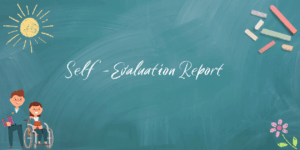
Self Evaluation – Fairview 24.25 final
What is a Self-Evaluation Report?
Key Components of School Self-Evaluation in PKC
Internal Self-Evaluation:
Schools conduct their own evaluations using national frameworks, often focused on specific areas like health and wellbeing or learning, teaching, and assessment.
External Validation:
The process is supported by external scrutiny from the Perth and Kinross Council’s Quality Improvement Officers (QIOs) who review self-evaluations and highlight areas for improvement.
Stakeholder Engagement:
Self-evaluation involves gathering views from various stakeholders, including:
- Pupils: Through surveys, focus groups, and direct dialogue.
- Parents: Via the Parent Council, surveys, and individual conversations.
Data Analysis:
Schools and the local authority analyze data on attendance, achievement, and attainment to identify areas where performance can be improved.
Improvement Planning:
The findings from self-evaluation directly inform the development of school improvement plans to ensure continuous progress against local and national priorities.
Focus on Quality Assurance:
This structured process of evaluation, data analysis, and professional discussion is a key part of the local authority’s broader quality assurance framework.

